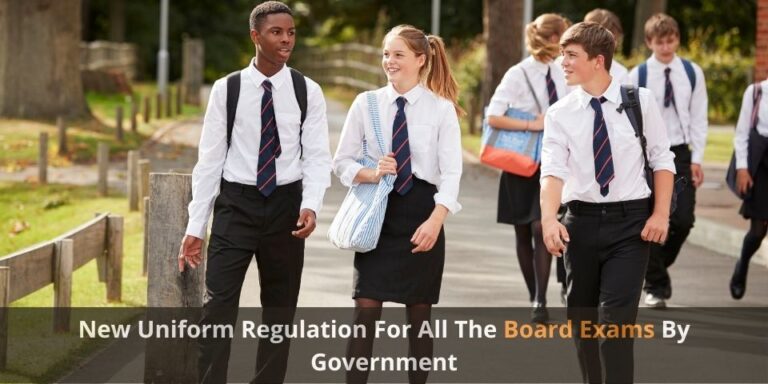
New Uniform Regulation For All The Board Exam By Government
Vishakha Singh
- August 31, 2022
- 8:45 pm

THE UNION government plans to draw up a “benchmark framework” to assess students at the secondary and higher secondary level to bring about “uniformity” across the state and central boards which currently follow different standards of evaluation, leading to wide disparities in scores.
The NCERT has been holding a series of meetings with representatives of state boards and SCERTs to develop a plan for implementing a new assessment regulator. This process has taken a few months, but the goal is to have a common understanding among all the parties involved. The new assessment regulator will help standardize the process across all states and ensure that everyone is on the same page.
The proposed regulator, PARAKH (Performance Assessment, Review, and Analysis of Knowledge for Holistic Development), will act as a constituent unit of the NCERT. Its purpose will be to hold periodic learning outcome tests, such as the National Achievement Survey (NAS) and State Achievement Surveys. This will help ensure that students are receiving a quality education and will also help identify areas where improvements need to be made.
The benchmark assessment framework will seek to put an end to the emphasis on rote learning, as envisaged by the National Education Policy (NEP) 2020. The NEP proposes that PAREKH, the proposed implementing agency, will also be a part of this transition.
This shift will away from rote learning and instead emphasize critical thinking and creativity.
It was discovered that during the meeting, the majority of states were in support of the NEP’s suggestion to have board exams twice a year- with one being solely for the purpose of helping students increase their grades. The states are also in agreement with the proposal to offer two different types of mathematics exams- a standard exam, and another that would test for a higher level of understanding.
“By having these meetings, we hope to alleviate some of the fear students have towards maths and encourage them to want to learn more. Additionally, we used the opportunity to get feedback on our proposals for the NEP – having two sets of question papers for most subjects, one with MCQs and the other descriptive. We received encouraging feedback,” said a Ministry of Education official.”
Latest News
People Reading Now

CBSE Compartment Result 2023 OUT: Click For Direct Link



CSAB 2023: Special Round Registration Begins Today

